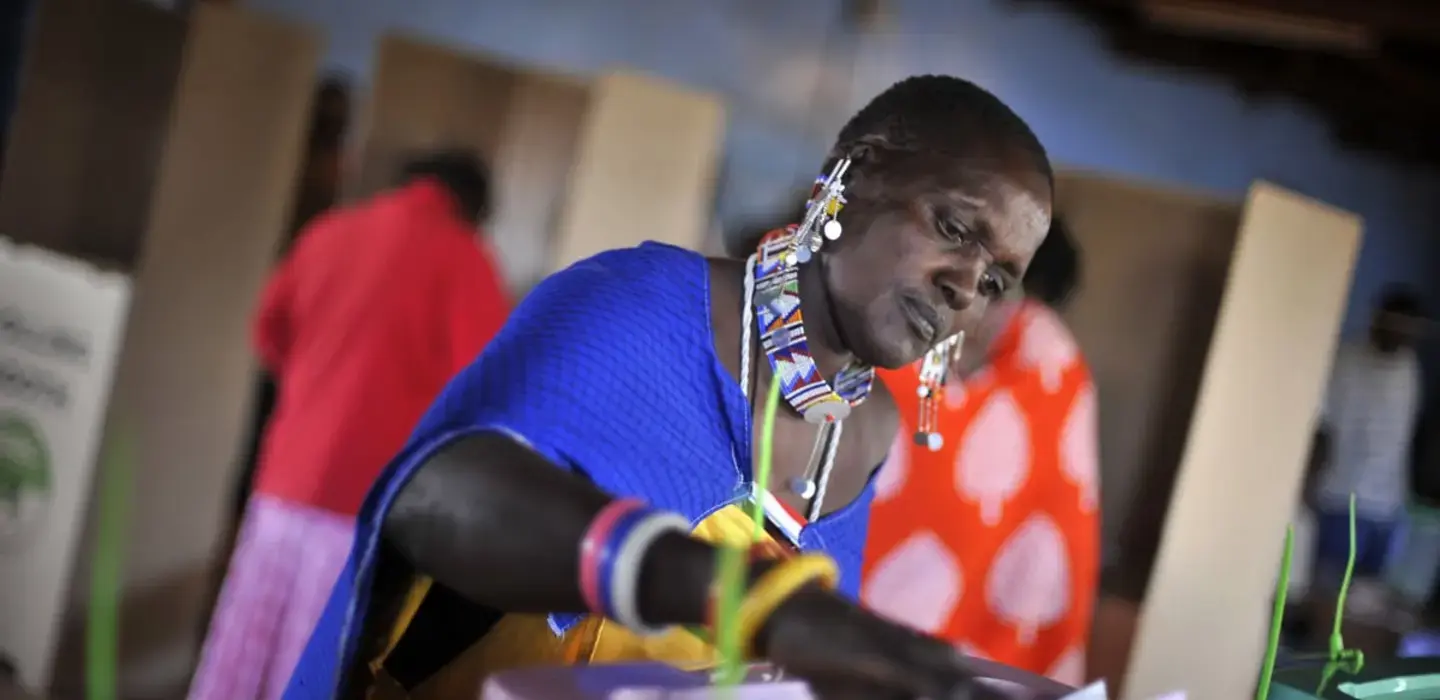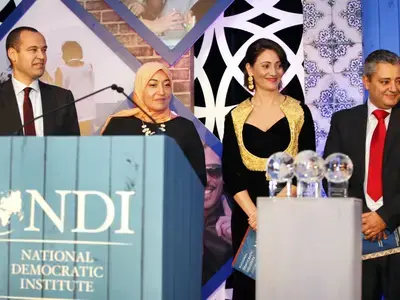Meet our HQ Leadership
Information on the Institute’s senior staff, including department heads and deputy directors.

Working for Democracy, Making Democracy Work
Overview

Information on the Institute’s senior staff, including department heads and deputy directors.

NDI's board of directors consists of a diverse group of leaders from a wide array of backgrounds.

NDI is proud to receive support and advice from retired US ambassadors who have witnessed the value of NDI's work in their diplomatic careers.
The defining issue of the 21st century is the fight between democracy and authoritarianism. The work NDI does has never been more important or in demand than at this moment in time.”
-Tom Daschle, Board of Directors Chair

Recognizing individuals and organizations from around the world that have carried out NDI's mission.

Presented to individuals who have demonstrated a commitment to democracy and human rights.

A fellowship for young women seeking to participate more fully in the politics of their countries, established in honor of former NDI staff member Andi Parhamovich.
Our team is working for democracy, and making democracy work.